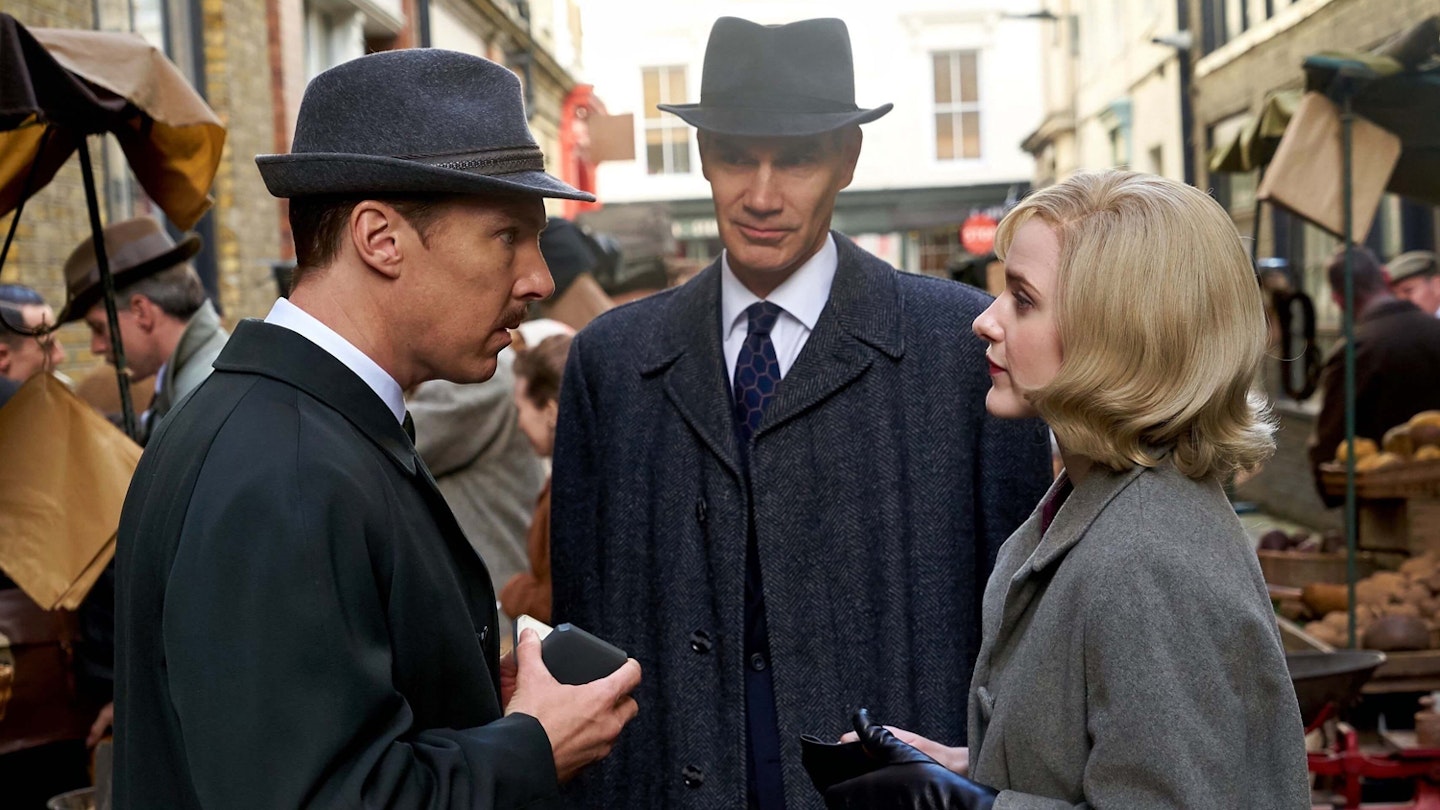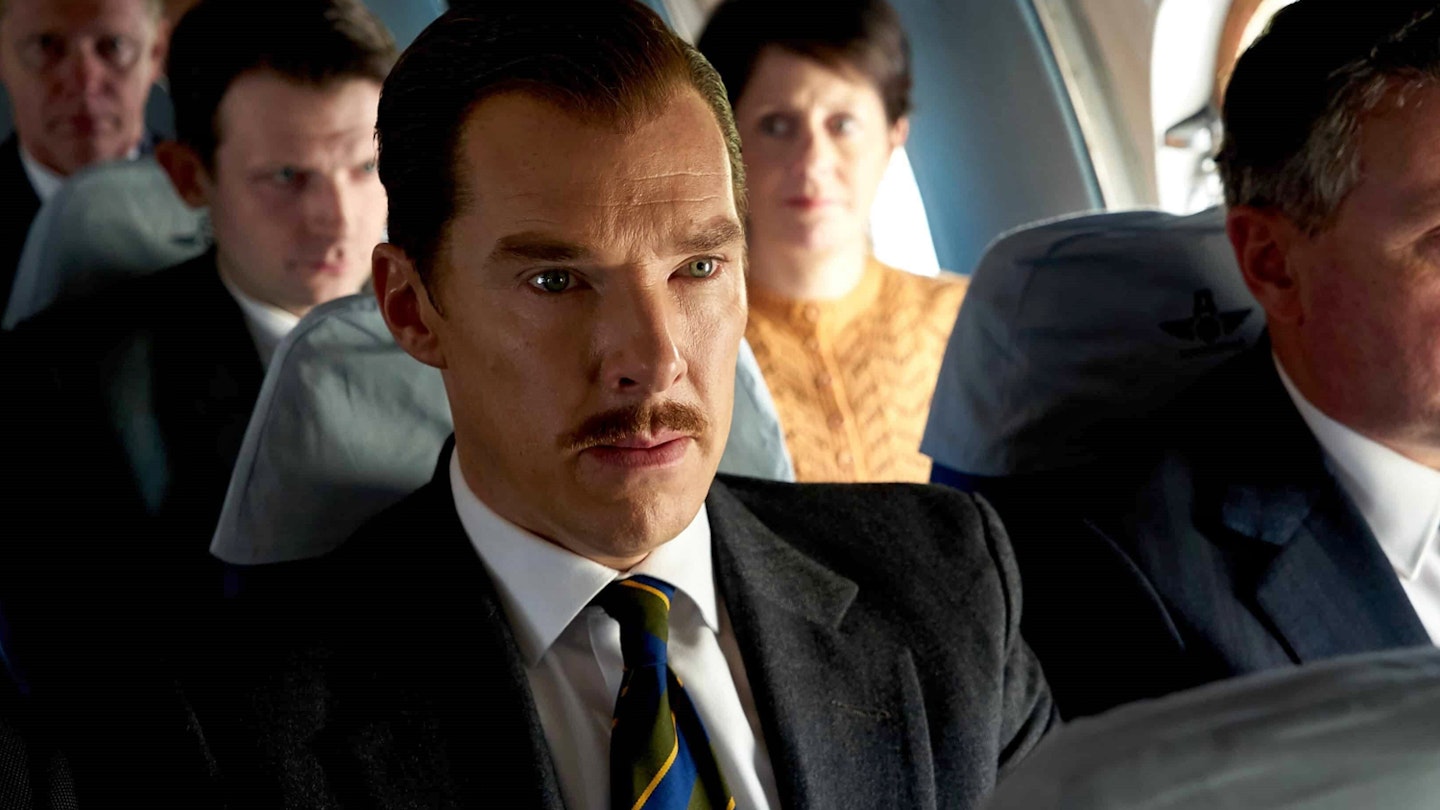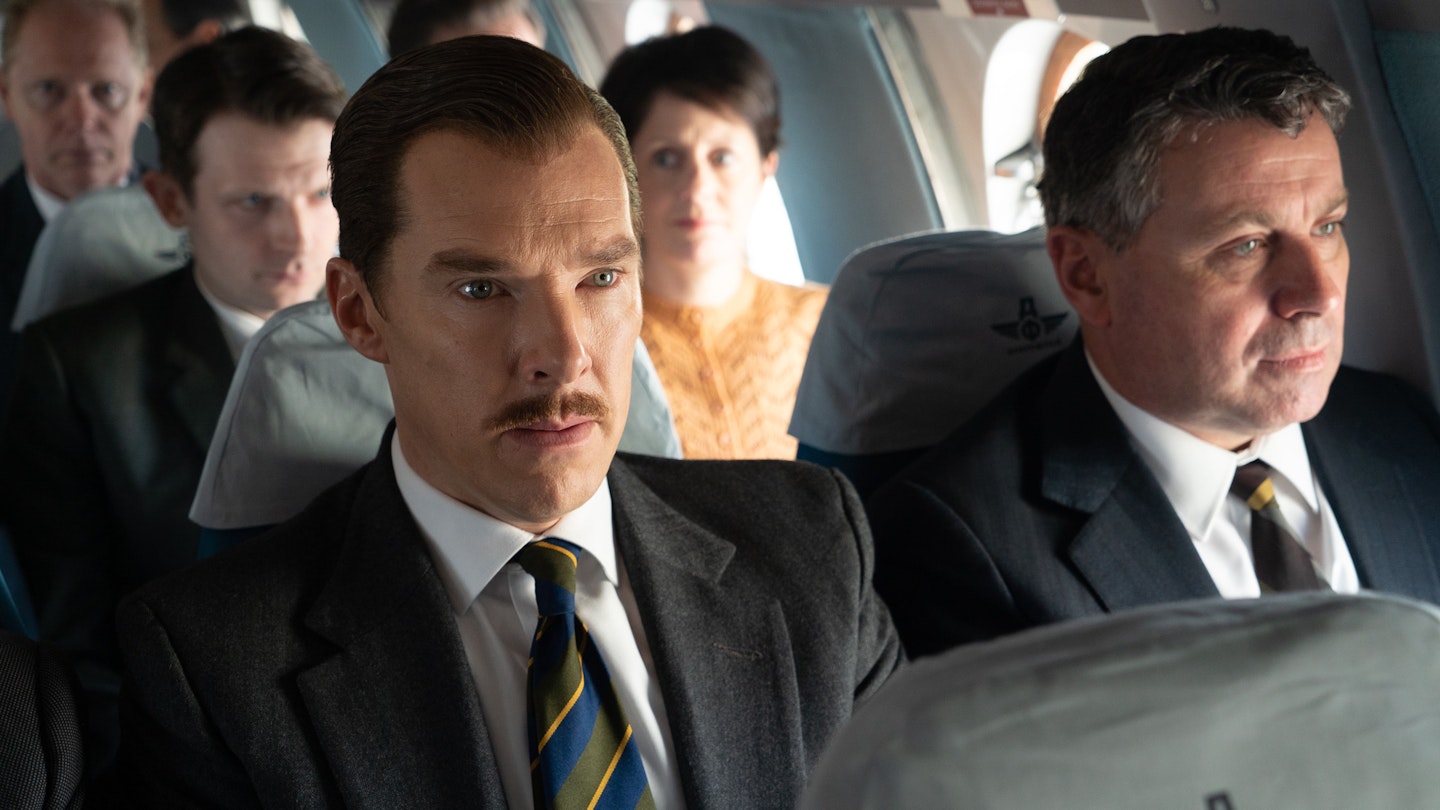Perhaps because it ended in resolution, not conflict, and thus lacks attention-grabbing booms and bangs; and perhaps because it was fought furtively and mostly behind closed doors, the Cold War hasn’t always been the most fertile breeding-ground for cinema. The real Cold War, that is, not the fictional version in which Bond and Harry Palmer risked life and limb to stop the Russians from doing something or other. But the real Cold War, waged by men and women who gritted their teeth through low-key heroics, is a rich repository of compelling stories.

Greville Wynne’s (Benedict Cumberbatch) — and, perhaps more accurately, Oleg Penkovsky’s (Merab Ninidze) — is one such story. An ordinary businessman plying his trade as the ’50s gave way to the ’60s, Wynne found himself recruited by MI5, on account of his regular trips to Moscow, and became Penkovsky’s contact, courier and, eventually, friend. Between them, they helped bring about the end of the Cuban Missile Crisis. And it’s their relationship that director Dominic Cooke and writer Tom O’Connor place front and centre, even more so than Wynne’s precariously balanced marriage to wife Sheila (Jessie Buckley, excellent as ever, even if the character isn’t always worthy of her talents), upon whom he once cheated.
It’s well shot, very well acted, and more enthralling than you might expect.
Cumberbatch and Ninidze are superb separately, the former lending the moustachioed Wynne immense likeability as the job he starts out thinking of as a jape rapidly becomes a dirty little secret that could jeopardise his marriage, his sanity and his life (and not necessarily in that order). Ninidze, a Georgian actor who popped up in the vaguely thematically linked Bridge Of Spies, brings humanity and warmth to Penkovsky, a man troubled by his own treachery, but impelled to do what he feels is right. But when the two are together, sharing clandestine meetings on gloomy streets, exchanging loaded glances over dinner, and going to the ballet, they’re even better, turning a concord of convenience into something more meaningful. It could even be seen as a love story of sorts, only the will-they-won’t-they question applies to whether or not they’ll be caught, sent to the gulag, or executed.
For most of the movie, while Cumberbatch and Ninidze are wrongfooting, and then attracting, and then trying desperately to avoid the glare of the KGB, the two share co-lead status, and the story itself is entertaining, if nothing exactly new. That changes dramatically in the film’s final third. As a British film, made by Brits, there are no prizes for guessing which character it focuses on, and Cumberbatch is excellent in this stretch as Wynne deals with the full impact of his actions, but in suddenly shoving Penkovsky’s story to one side, it feels like an emotional trick is very much being missed. There are also times when you sense its ambition outstrips the budget, with the actual Cuban Missile Crisis largely kept off-screen, mentioned only in dispatches. However, it’s well shot, very well acted, and more enthralling than you might expect — especially if you don’t know anything about the real-life outcome for Wynne and Penkovsky. Best go in cold.

